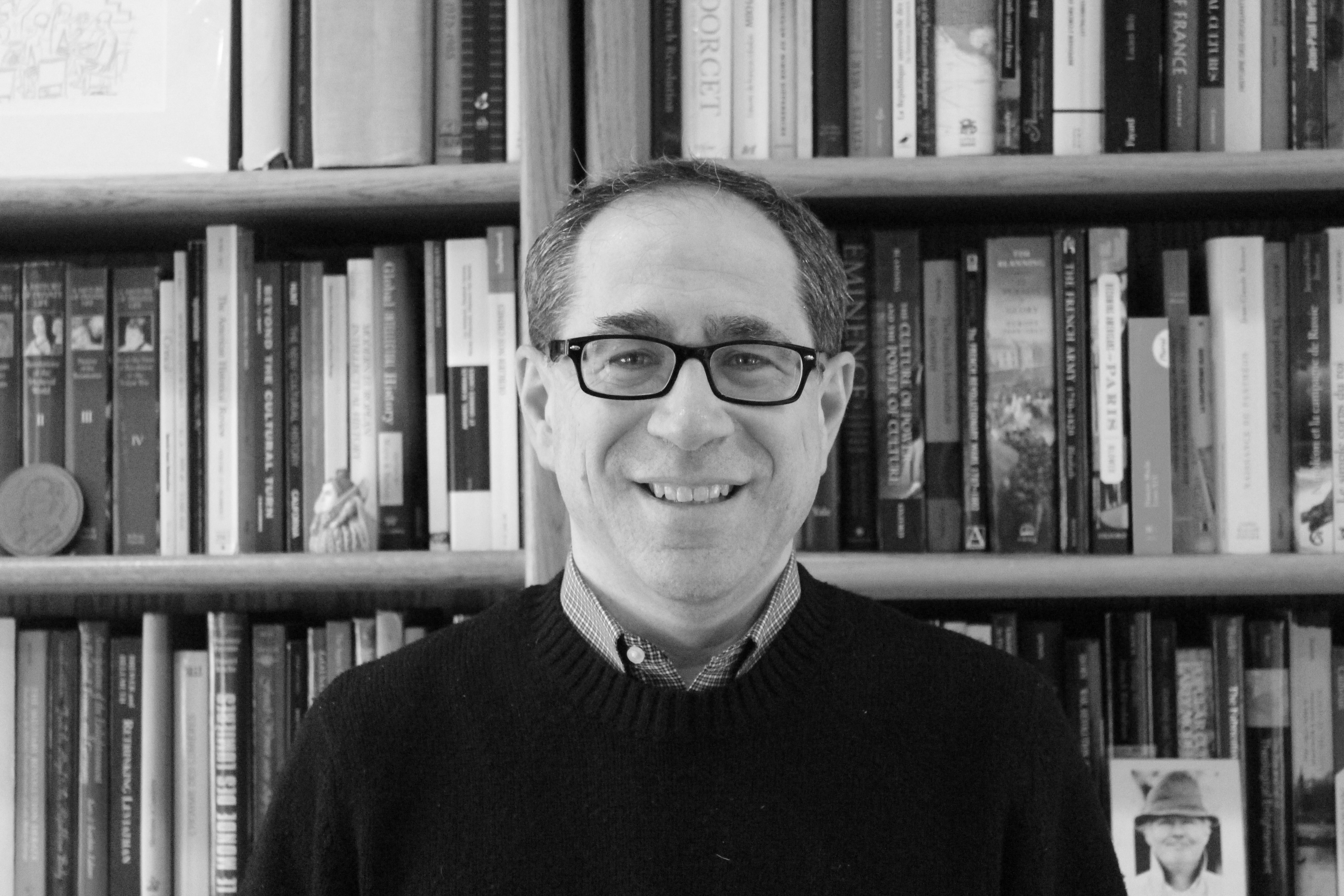Welcome to ‘under the spotlight’, a monthly interview series which offers a snapshot from academics’ lives: their passions, interests and reading suggestions – all summarised in less than ten minutes. You can catch up with previous posts here.
As we approach the conference season, the next few months will feature key note speakers from the SSFH conference in St Andrews (28-30 July 2015). Details about the programme and registration can be found here. Registration for the conference will remain open until Friday 5 June 2015, 9am (British Summer Time).
The second featured keynote speaker is David Bell, the Sidney and Ruth Lapidus Professor in the Era of North Atlantic Revolutions and Professor of History at Princeton. David has two publications appearing in 2016: Shadows of Revolution: Reflections on France, Past and Present and Napoleon: A Concise Biography – both can be pre-ordered now.
Professor Bell’s plenary session at the SSFH conference will take place on the afternoon of Monday 29 June 2015.

In one sentence, what is your research about?
My current research is on how notions of charismatic political authority developed in the Atlantic world during the eighteenth century, and how these notions helped to drive political change during the age of revolutions, even while being transformed in the process.
What was your motivation for researching French history?
Some of it was serendipity. In the beginning was Astérix, which gave me the motivation to study French while still very young, so I could read the titles that had not yet been translated into English. That led in due course to a very happy séjour linguistique in France as a teenager, after which I was determined to return to the country as often as possible. A post-college year at the École Normale Supérieure then plunged me into the historiography. I came out of it convinced that of all the times and places that helped to invent modern politics and modern Western culture, France in the age of the Enlightenment and the Revolution was quite possibly the most important, and certainly the most interesting.
If you could travel back to any historical period or moment, when would it be?
The French Revolution, of course!
Who would you invite to your French History fantasy dinner party?
Diderot, Montesquieu, Voltaire, Madame de Staël, Madame du Châtelet, Madame Roland. I would love to meet Rousseau and Robespierre, but both of them were the sort who tended to ruin good dinner parties. As long as I am fantasizing, let’s have Escoffier in the kitchen and Cambacérès choosing the wines from his own cellar.
Which French History monograph do you wish you had written?
It’s not exactly a monograph, but: The Literary Underground of the Old Regime, by Robert Darnton. This was the book that, more than any other, inspired me to become an historian.
Which book(s) are currently by your bedside?
We, by Yevgeny Zamyatin; Sapiens, by Yuval Noah Harari; The Lady from Zagreb, by Philip Kerr; How the French Think, by Sudhir Hazareesingh; The Oxford Book of English Verse.
What key piece of advice would you offer postgraduates/early career academics?
Find a research subject that really, really grabs you, and keeps your spirit alive through years of mostly-solitary labor. Otherwise, it’s not worth putting up with everything that today makes an academic career so fraught and anxious.
A few quick-fire questions…
Archives Nationales or Archives Départementales?
Bibliothèque de la Société de Port-Royal. I mostly worked there for my first book, but the wilderness of the Le Paige papers remains the single most fascinating archive I have ever worked in.
Monograph or journal article?
Monograph.
Best conference you’ve ever been to?
“Rethinking the Age of Revolutions,” at Princeton this past spring. Not very modest, I suppose, since I organized it, but the fun of organizing a conference is precisely to bring together as many as possible of the people you most enjoy talking to about the subjects you work on. The theory certainly worked in this case!
Pick a century?
Dix-huitième!
Éclair or saucisson?
Éclair. My family will testify to my addiction to sausages, but for that particular item, I prefer the other side of the Rhine.
***
Many thanks to David for taking the time to answer our questions.
If you’d like to take part, or suggest someone to feature on the blog, then let us know!



One Response